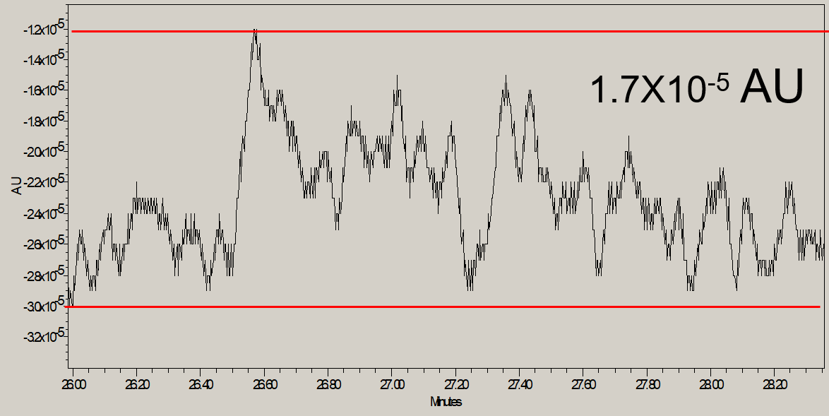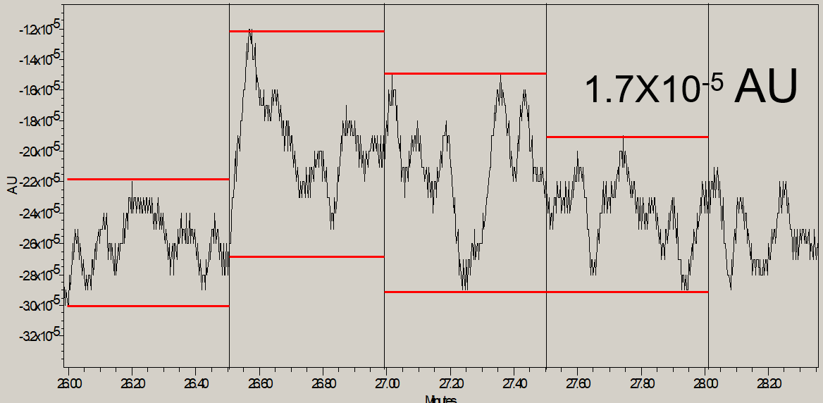Baseline Noise: Measuring Peak-to-Peak Noise - Tip295
OBJECTIVE or GOAL
Measure peak-to-peak noise.
ENVIRONMENT
- Empower
- Empower Tip of the Week #295
PROCEDURE
STEP 1
Peak-to-peak noise, measured in a classical sense, is simply the highest noise point across the measured region minus the lowest noise point. You can imagine that if this were a gradient chromatogram or if there was significant drift over the measured region, your noise calculation could quite simply equal the drift calculation (Figure 1).

STEP 2
To help eliminate the drift variable from these calculations, it is common to break the noise region into smaller segments. In this example, we break the measured noise region into 30-second segments from 26 to 28.3 min (Figure 2).

STEP 3
Now, measure Max minus Min noise in each segment and average the resulting noise from each segment (Figure 3).

STEP 4
You can see that we have reduced the measured noise over this region from 1.7 to 1.1 times 10-5 Absorbance Units (Figure 4).

ADDITIONAL INFORMATION
This can be done with either the Pro or QuickStart interface.

